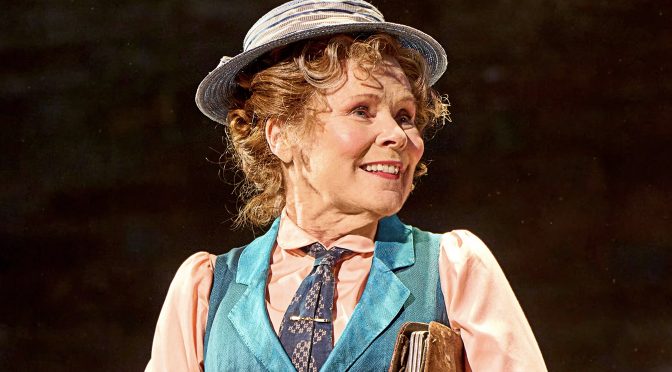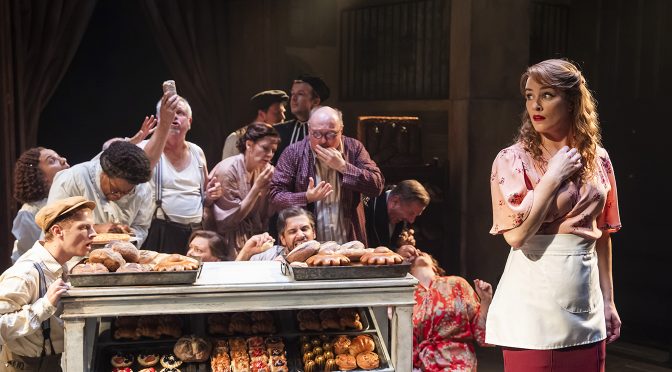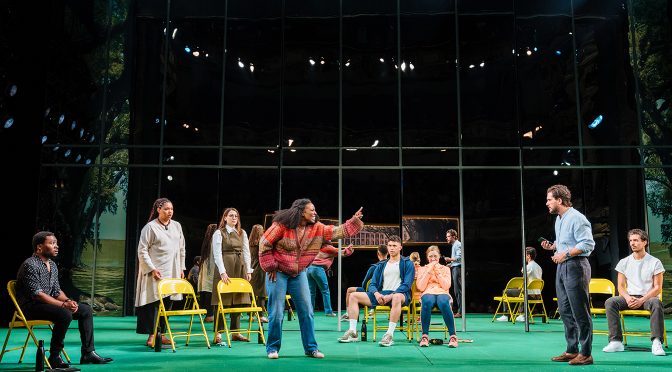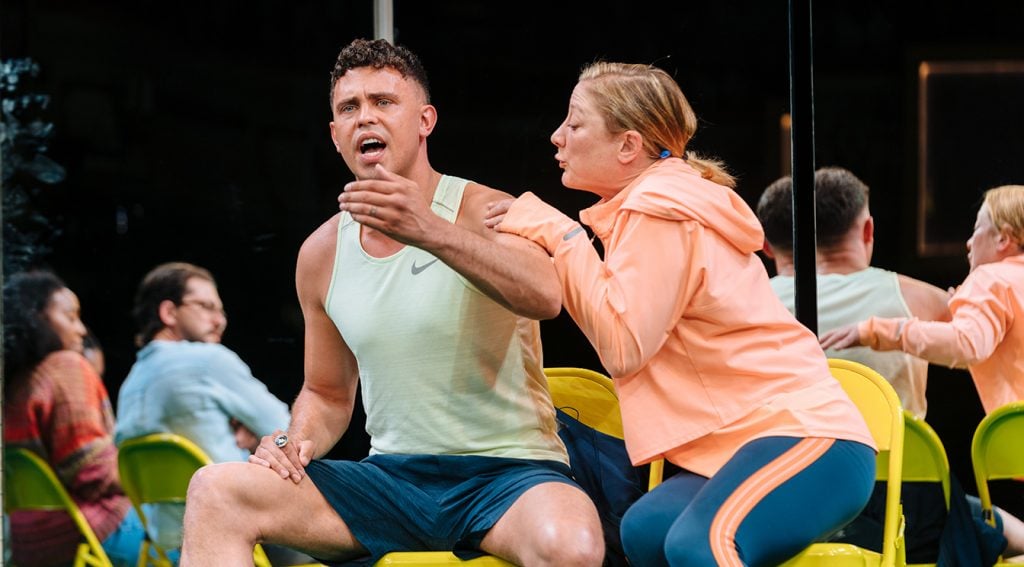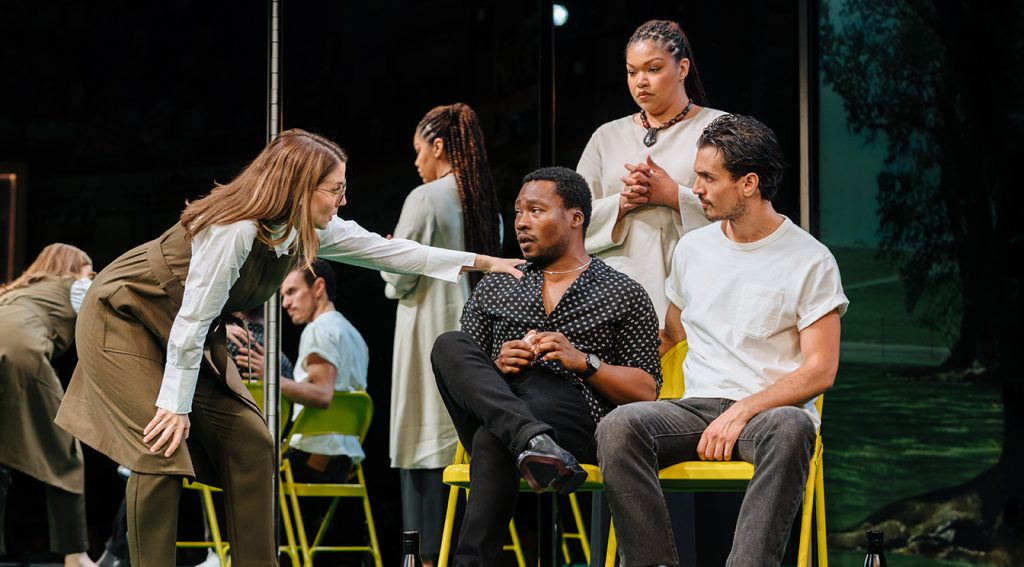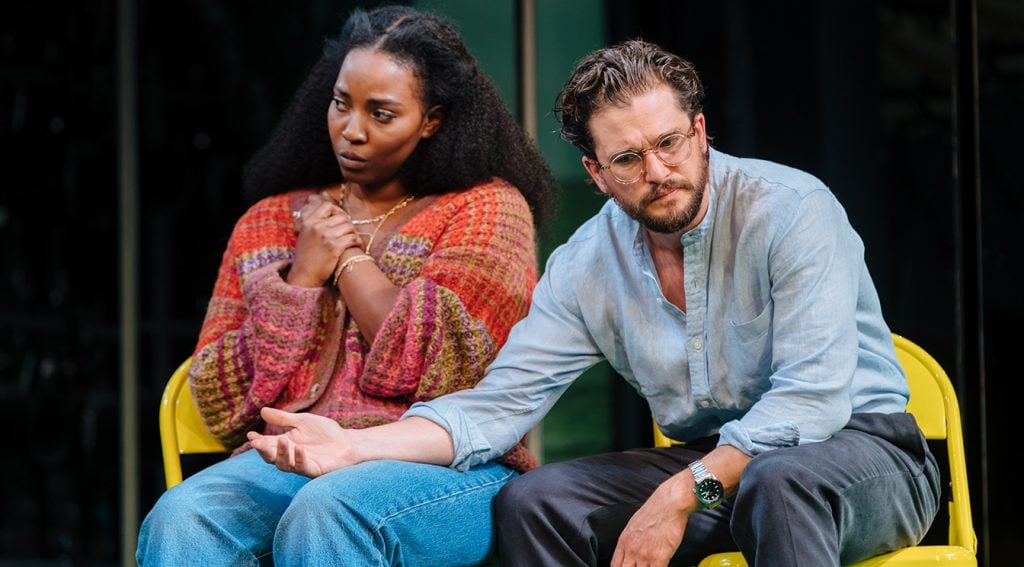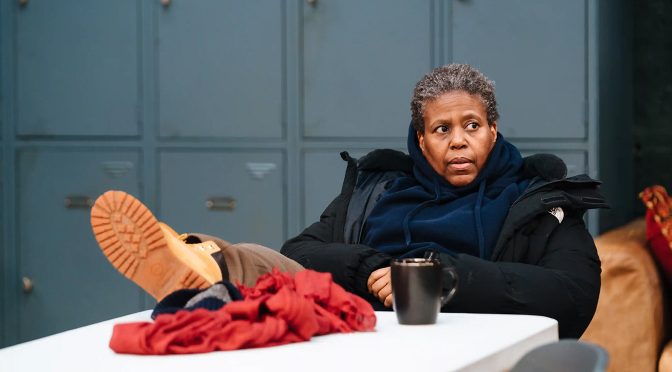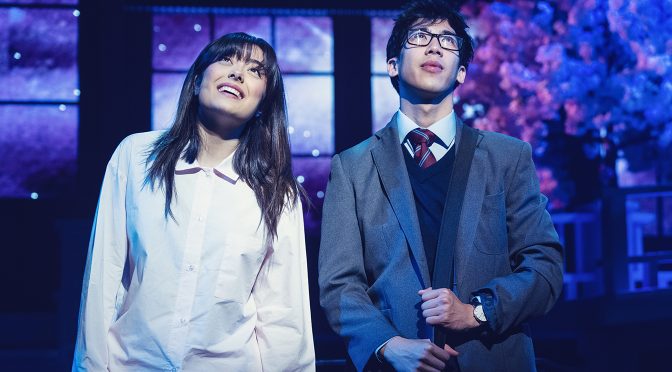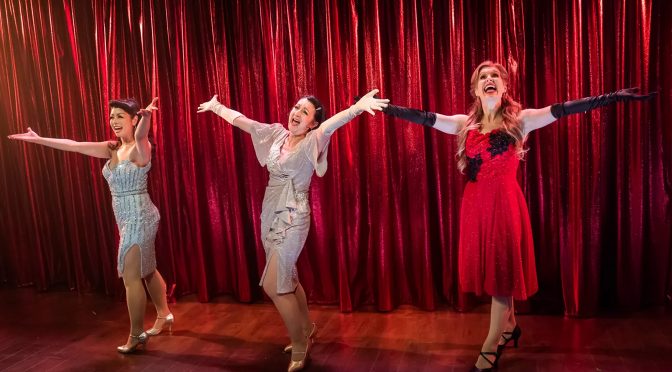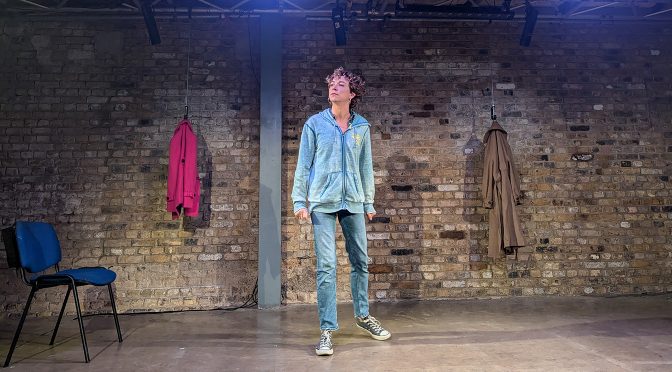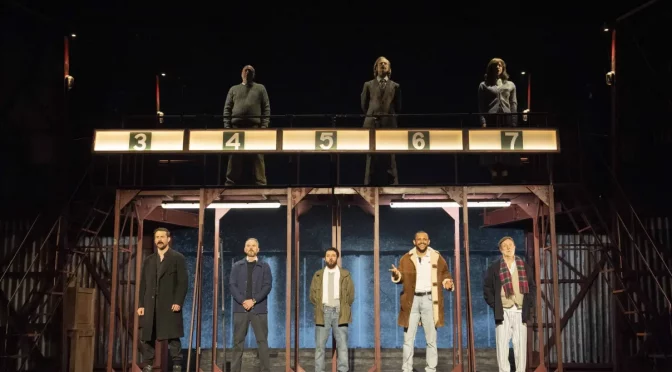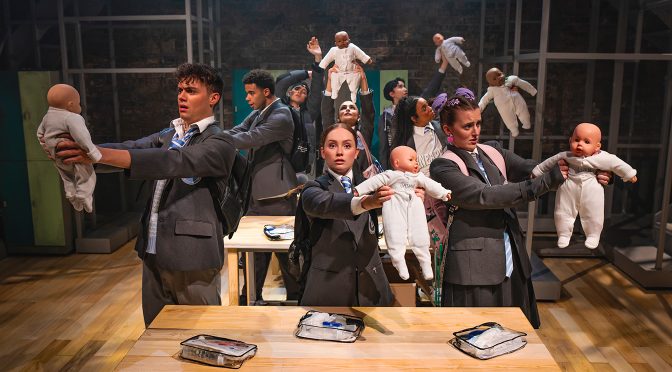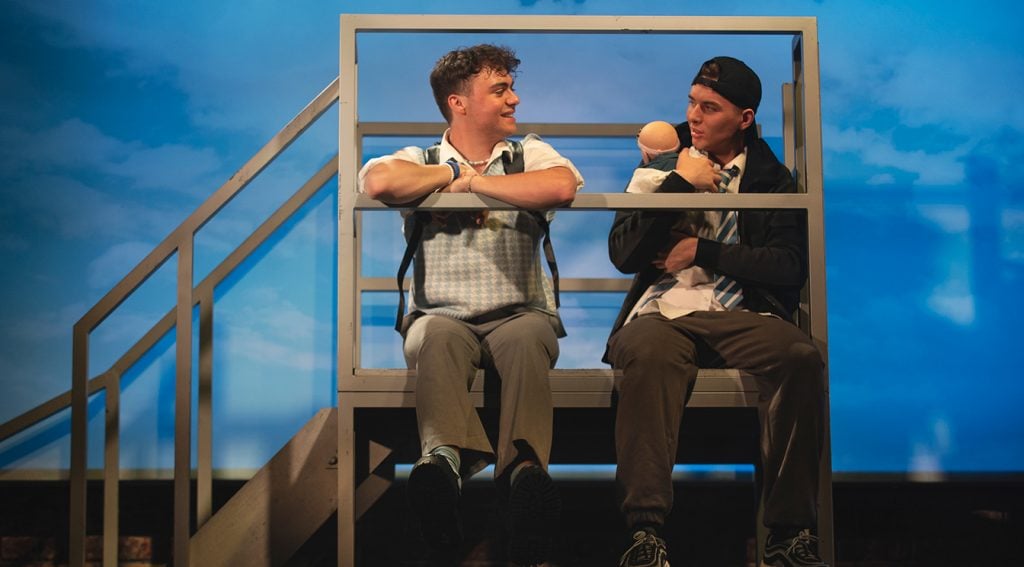This accomplished monologue is difficult to watch, but easy to admire. The only character who appears is so traumatised that she doesn’t know her own name. And the institutional therapy session we watch details domestic abuse towards a violent outcome. It’s tough stuff, brought painfully to life by the commitment and skill of its creative team.
Written by Emily Jupp, the script is taut and well-paced – director Scott Le Crass appreciates both strengths. We are given red flags about the relationship recounted. You might wonder that the danger isn’t too clear – for the audience, the trouble doesn’t seem as “incremental” as it is said to have been. And the humour sometimes falters – again, how deliberate is this? But the way Jupp takes time to show how troubled the character is provokes powerful emotion. The drama of events escalates carefully. It sounds odd to say, given the subject matter, but Wormholes is beautifully structured.
As you might expect from listening to a troubled mind, there are plenty of tangents. Some are blunt metaphors, but they help with the rhythm of the piece and raise questions. To what extent societal expectations shaped lives and events dominates. There’s a lot about anxiety, too, that aids an oppressive atmosphere – even if these trials of modern life are too commonplace. And for a monologue, this is a populous piece: friends, family and others in the play’s unspecified setting are all vivid. Each elicits examination from the audience as they relate to one or more of the people mentioned.
This is all strong, but none of it would work without an excellent performance from Victoria Yeates. Care is taken in establishing her character as a kind of everywoman, someone to relate to, appealing in her seeming honesty. When this mask slips, sometimes suddenly, it is very sad. Or, when Yeates speaks the words of her husband, it is scary. Showing a woman locked away is an old trope, but Wormholes allows this one to say a lot for herself. And there’s more. This is not just a mad woman but a mad mother. What happened to her son – what she has done – is not revealed. It’s another taboo, one Jupp leaves open, that makes her play fairly screech with tension.
Until 10 August 2024
Photo by Rob Greig


